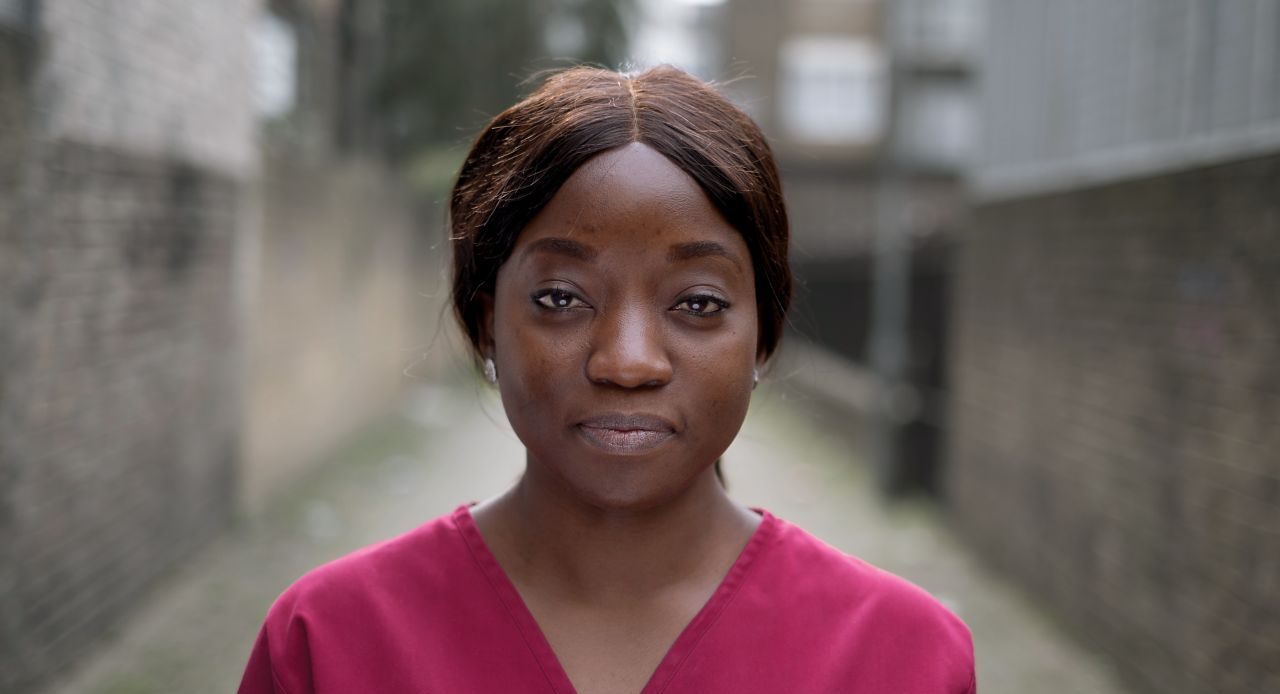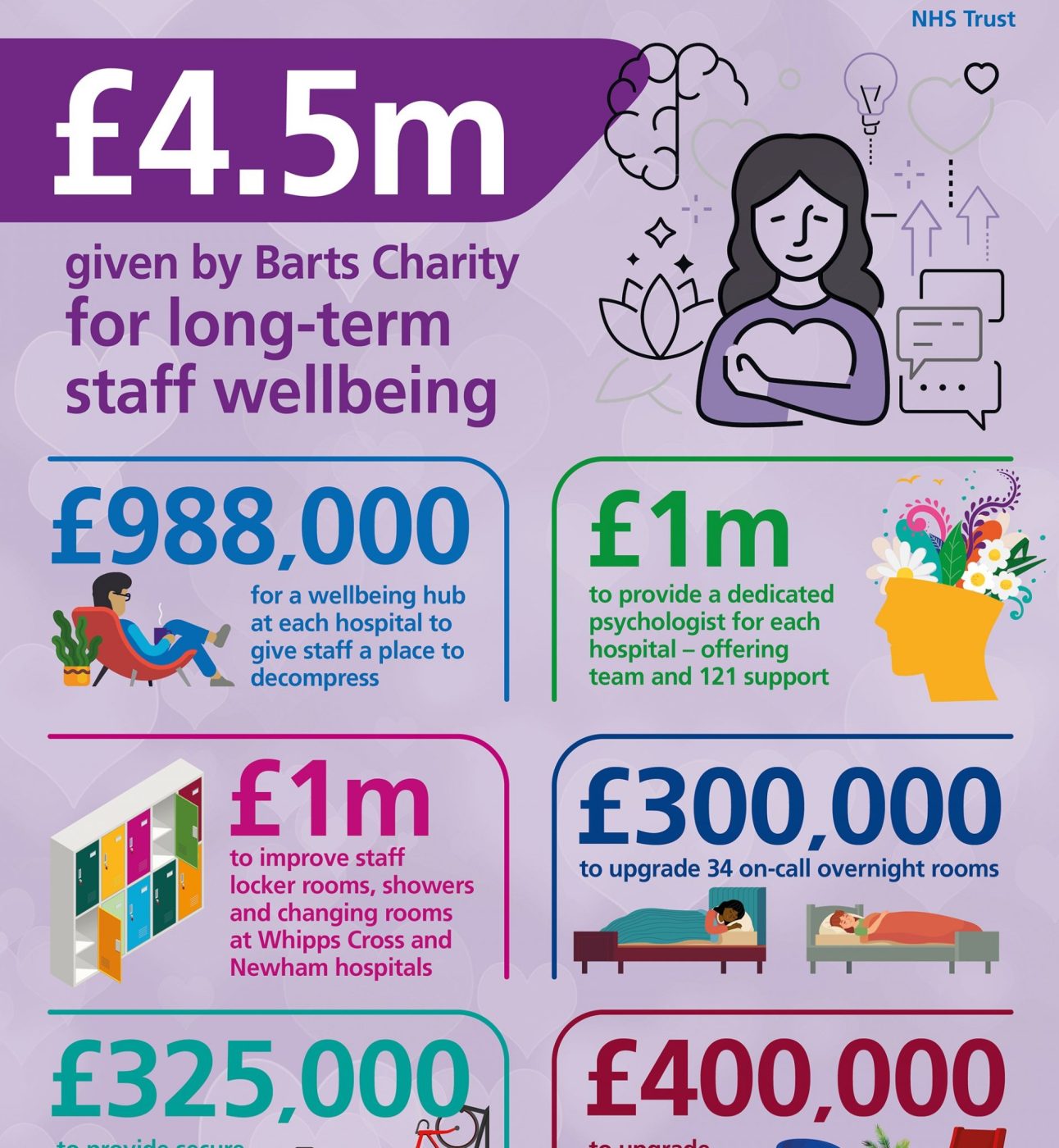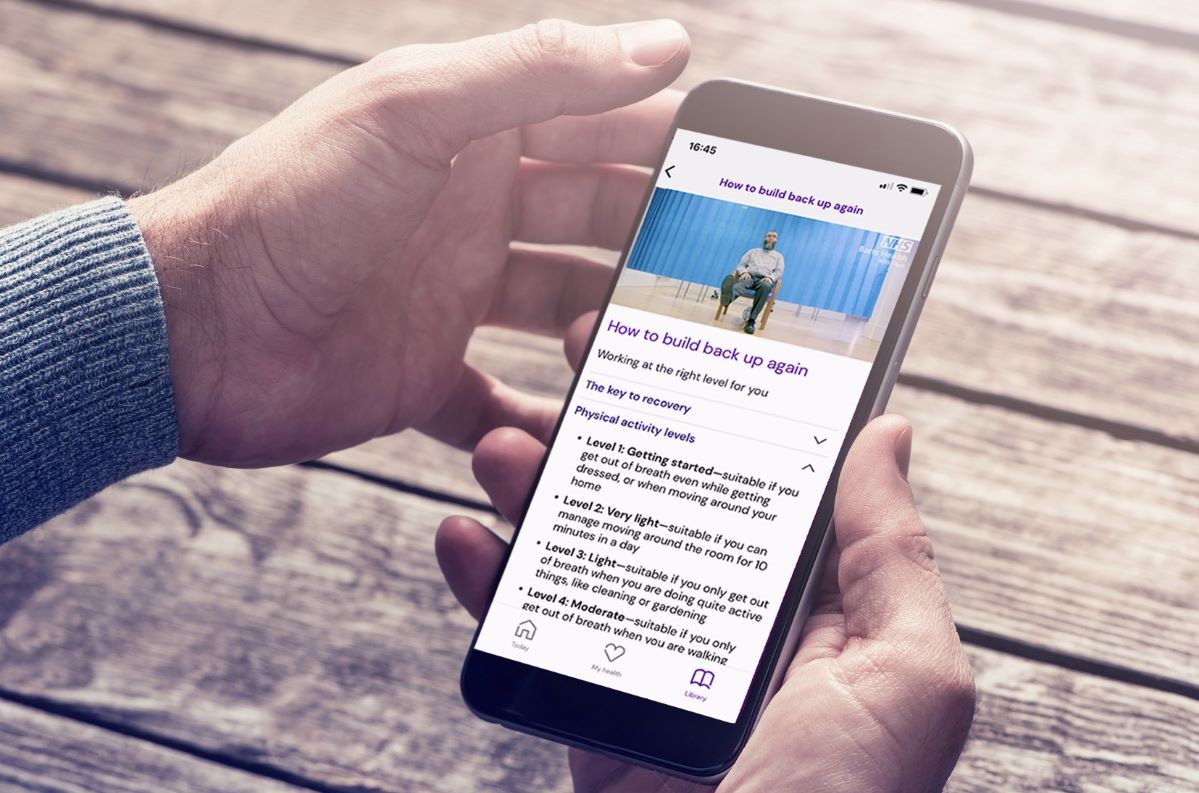
The harsh impact of Covid-19
The harsh impact of the Covid-19 pandemic on healthcare workers’ mental, physical, and emotional wellbeing has been laid bare in a study showing how it has intensified as the pandemic dragged on.
Early findings from a study we funded reveal how depression, sleep problems, and personal relationship issues all increased through the course of the pandemic. At the same time, healthcare workers became less physically active and gained weight.
Study findings
In September 2020, nearly half of healthcare workers (49.5%) reported feeling depressed or hopeless, but this increased to nearly six in ten (57.5%) by January.
Similarly, the number of people saying they had difficulty falling and staying sleep increased (from 64% to 71%), and the proportion saying that work was affecting their personal relationships jumped from one third (32%) to nearly half (48%).
The study found that anxiety levels shot up dramatically during the first wave, with more than 8 in 10 (84%) worrying that they would pass Covid on to their relatives. In fact, one fifth of healthcare workers made new living arrangements to protect clinically vulnerable family members.
Two thirds of workers said they had trouble relaxing throughout the pandemic, and half found it impossible to stop worrying. Burnout remained high (40%) and a quarter sought help for their mental health (26%).
"I was always tired and worried about my loved ones and me. I am very thankful for the team that worked with me, we all supported each other to get through the tough times."Petra Francis, Matron for Specialist Medicine at Newham University Hospital
An emotional time
Petra Francis, Matron for Specialist Medicine at Newham University Hospital said:
“It was a very emotional time for me as I saw a lot of families affected by the virus and lot of loved ones die. I stopped watching news and stopped talking about work at home in order to get time out. I was always tired and worried about my loved ones and me. I am very thankful for the team that worked with me, we all supported each other to get through the tough times. We cried together a lot as a team and it made us stronger for those who needed us.”
An increase in dress size
As time went on, more people said that the amount of physical activity they were doing had decreased (48% to 55%), and that they had put on weight or increased in dress size (40% to 45%).

Dr Ajay Gupta, cardiovascular consultant at St Bartholomew’s Hospital and Senior Clinical Lecturer at Queen Mary University of London
A toll on the NHS
Study lead Dr Ajay Gupta said that the findings were shocking and clearly demonstrated how hard it had been for healthcare professionals:
“It is clear that the pandemic has taken a big toll on the healthcare workforce – perhaps even bigger than we initially suspected. Levels of depression and anxiety have been high, and many colleagues are experiencing frequent feelings of burnout. Three months into the pandemic we could already see the impact the stress was starting to have on staff, and, sadly, this only got worse with time. However, our study clearly -for the first time- points out specific areas to act on to help improve this situation. It also provides for understanding about various interventions that maybe useful to reduce this extreme burden posed by the pandemic.”
More than 1,000 healthcare workers took part in the study, the majority of whom were doctors and nurses based in London. The findings will be sent for publication in due course.

Dr Carla Croft from the Psychological Support Service
Funding a new service to support staff wellbeing
Responding to the pressures put on staff during the pandemic we’ve funded a new psychology service that is now up and running across Barts Health NHS Trust, with clinical psychologists available to support staff in each of the Trust’s five hospitals. In the first month alone, 25 staff were given one-to-one support for mental health issues such as low mood, sleep problems, trauma, and bereavement.
Dr Carla Croft is leading the service and says that a lot of the initial work was in relation to the second wave of Covid:
“We are so pleased to be able to launch our new psychological support service for staff at a time when there is clearly a lot of need. We have found ourselves starting with short pieces of work to help staff connect with their own natural ways of regaining strength and also to reconnect with each other to reflect on their experiences. We all feel so privileged to be working alongside our colleagues to help them focus in on their well-being at this important time.”
Find out more about how your donations have helped this project.




